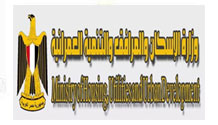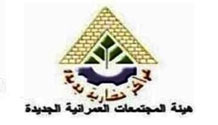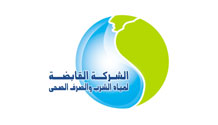The construction market of Egypt has been growing rapidly at a rate of 15 percent a year since the 1980s, resulting in a substantial boom in residential and commercial real estate. There is strong demand for infrastructure projects due to rapid population growth and housing shortages. The sector is expected to grow 70% between 2015-2020 to reach USD 12 billion.
Egyptian Market Overview
Egypt's rapidly growing building and construction sector is expected to attract investments of around USD 7.3 billion by 2016. The sector continues to uplift related industries such as cement, iron, metal, steel, Bricks and electricity and has emerged as one of the country's top revenue generators. Non-residential construction will continue to dominate the industry and comprise up to USD 6.7 billion, with residential projects to account for USD 606 million
Make your decision now and invest the booming in Egyptian infrastructure business and book your stand in Infra Africa & Middle East Show 2017.
Greater investment in the housing sector has the potential to quickly stimulate economic growth and rapidly create new jobs across the country due to the high linkages between the construction sector and other economic activities. It is also critical to meeting the security and welfare needs of a growing population.
To that end the Government committed last year to providing 1 million homes for low income households over six years and reformed legislative and regulatory burdens on construction. The Central Bank has provided below-market-rate funds to stimulate financing of low and middle income homes. Hand in hand with this, the Government is seeking to improve access to high quality water services and sanitation.
Private sector participation is essential to fueling higher growth in the housing and construction sector and offers the prospect of substantial returns on investment:
Property developers have an opportunity to capitalize on growing demand for low and middle income housing. With both a large population and urbanization rate, there is an acute and growing demand for new affordable housing with an estimated shortfall of some 3 million houses, and demand for a further 300,000 each year
Specialized financial institutions also have the opportunity to enable greater access to finance. A lack of access to finance is a significant obstacle for many seeking to purchase a home; a large proportion of the population is self-employment or in the informal sector.
There is also substantial scope for renovation and restoration work of Egypt’s existing stock of housing; a quarter of existing stock over 30 years old.
Egypt’s abundant, high quality and reasonably priced raw materials such as limestone clay, and their above ground accessibility, greatly reduce the costs of extraction and construction
Strong domestic companies working in the steel, cement, marble and granite, pipe, sanitary tools and ceramic sectors, with local knowledge and high levels of technical ability, provide ideal partners for international investors
Currently, economic diversification is a key focus for the Egyptian government. The Egyptian market has witnessed an increase in planned residential projects. The construction sector is expected to grow an average of 6.7% over the next two years. Despite the short-term decline expected in the tourism industry, the sector continues to attract investment. The USD 250mn first phase of the IL Monte Galala-Sokhna project will deliver more than 1,600 residential and hotel units by 2019. The entire project is expected to take 10 years to complete.
Construction sector’s growth is expected to see a slight slowdown to an average of 3.8% annually between 2017 and 2025, reaching USD 30.89bn in 2025, up from USD 15.42bn in 2016.
A new vision for the role of private business started as Egypt-based Palm Hills Development Company signed an agreement with the New Urban Communities Authority in the Egyptian Ministry of Housing to develop an integrated residential project in eastern Cairo on a revenue-sharing basis. The 2.02 sq. km project is being co-developed with Egypt’s Ministry of Housing and is expected to attract more than USD 4.4bn of investments. While the key public sector player is the Arab Contractors.
As for the Industrial sector, the ASEC-Capital alliance has signed a contract with the Suez Canal Economic Zone Authority to develop an industrial city in the Suez Canal Axis region. The alliance consists of Egyptian, UAE, Lebanese and Saudi Arabian firms, including Al-Muhaidib Contracting Company, Al Rajhi Holding, Al Kridis Group, Al-Saedan Real Estate Company and Khoury Contracting Company. The city will cover 6mn sq m and will be developed at a cost of up to USD3.3bn, while infrastructure for the industrial city will entail investments worth USD300mn.
Sub-Sector Best Prospects
- Road management systems
- Bridges
- Green building
- Power projects
- New cities
- Utilities and infrastructure
- Low income housing
Opportunities
There is a strong future domestic demand for infrastructure owing to a young and growing population. In addition, there is an emerging public-private partnership (PPP) market, with new laws improving procurement and legislation. There is strong demand for housing in Egypt: increasing population and urbanization have resulted in the government undertaking major urban planning programs.
Several strong domestic construction companies, with high levels of technical ability are working on major projects to satisfy the local demand for different types of housing and retail projects.
There are major tourism construction projects are driving demand for transport and tourism infrastructure. Loans from the UAE and Saudi Arabia will help provide liquidity for infrastructure projects. The US and European Bank for Reconstruction and Development have offered financial support (loans and loan guarantees) for infrastructure projects, including financing to help support PPPs
Infra Africa & Middle East show 2017 is the Egypt's leading event dedicated to civil engineering and construction, bringing together leading suppliers of the latest technologies, systems and products required in the civil sector.
Invest the opportunity of the booming construction market in Egypt and Africa and promote your products and services at the only International expo for Infrastructure in Egypt – Infra Africa & Middle East Expo 2017
Africa and Middle East Market Overview
The Middle East provides a key shining light where the Region’s construction market recovery is well underway, with capital raised in the first half of 2012 increasing by about 200% compared to the same period in 2011. Despite the recent downturn in the region due to the wave of political uprisings known as the Arab Spring swept across the Middle East and North Africa (MENA) region, the fundamentals for the construction market remain strong, and analysts are confident that fenestration demand will rebound in the medium - long term; The supply-demand imbalance between finished products output and apparent consumption in the Middle East & North Africa (MENA) region is expected to widen in the next few years..
Construction activity in East Africa, according to analysts, has seen an increase of over 13% compound annual growth rate between 2009 and 2013. The broad sectoral shares of projects include the largest share of infrastructure projects (59% as of 2014), followed by energy and power accounting for 37% of the total. Construction activity in the transportation sector also grew by 17%.**
The number of mega construction projects in East Africa (excluding Mozambique) grew 12% from US$ 60,671 million to US$ 67,688 million in 2013.
* Source: Ernst and Young Africa Attractiveness Survey in 2014
** Source: Deloitte study
Participate in Build Africa & Middle East show to enjoy;
- Reach up to 20,000 prospective clients with FREE marketing support.
- The buyer comes to you to source the products on your stand.
- Network with industry decision-makers and expand your contacts.
- Hundreds of construction buyers will attend Infra Africa & Middle East show to source the latest and greatest in construction innovation. Attendees include architects, project managers, interiors designers, procurement managers and more
Access Africa’s growing building & construction market
- Enquire today to find out how we can help your business grow in 2017
- At Build Africa & Middle East we bring together influential decision-makers from across the region and beyond for three days of business and networking opportunities that are guaranteed to generate sales leads.
- Through our network on-the-ground office expertise, a dedicated marketing and database team, high profile industry endorsement and government body support, Build Africa & Middle East gives you direct access to thousands of architects, interior designers, engineers, contractors and real estate developers actively seeking new and ground breaking construction products.
- Working hard to deliver market leading shows is something we’re passionate about. And whilst many organizers are happy to just put on the events, we know we have a responsibility to help you get the best possible return on your investment
- Our dedicated team will help you choose from a number of sponsorship opportunities designed to develop your brand. With multiple options to choose from, there are solutions to suit every budget














